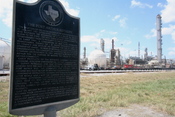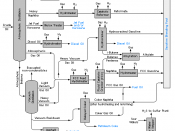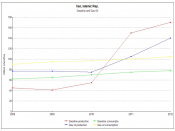Hybrid Modes of Organizations
Gasoline retailing
The major oil refining companies (e.g. Exxon Mobil) own and operate their own service stations. The refiner determines the hours of business and the retail prices at the stations it operates, and station personnel are employees of the refiner. Refiners also sell their gasoline through service stations that carry their brand name, but are operated by independent dealers who either own the service station outright or lease it from the refiner (independent operators who leave from the refiner receive the profits (or bear the losses) from running the station). At independent stations, the dealer, not the refiner, sets the retail price of gasoline and the hours of business.
Today, the majority of gasoline stations that sell major brands of gasoline (i.e. a gasoline station that sells the product of a major refiner such as Shell or Chevron Texaco) are operated by independent dealers.
For example, in San Diego County, California in 1996, 60.3 percent of all gasoline stations sold major-brand gasoline and were independently owned, while 16.8 percent sold major-brand gasoline and were company owned. The situation in San Diego is typical of gasoline retail market throughout the United States. This situation was not always the norm. In the 1920s and 1930s, most large oil companies were fully integrated at the retail level. They owned almost all the stations that sold their gasoline. In the mid 1930s, the possibility that Iowa might impose a "chain store" tax led the major refiners to experiment with sales through independent franchised dealers.
Finally, it is interesting to note that recently, there has been a shift in the relative proportion of independently operated and company operated gasoline stations: between 1980 and 1990, the number of major-brand, independently operated stations has declined from about 180,000 to 110,000, whereas...


